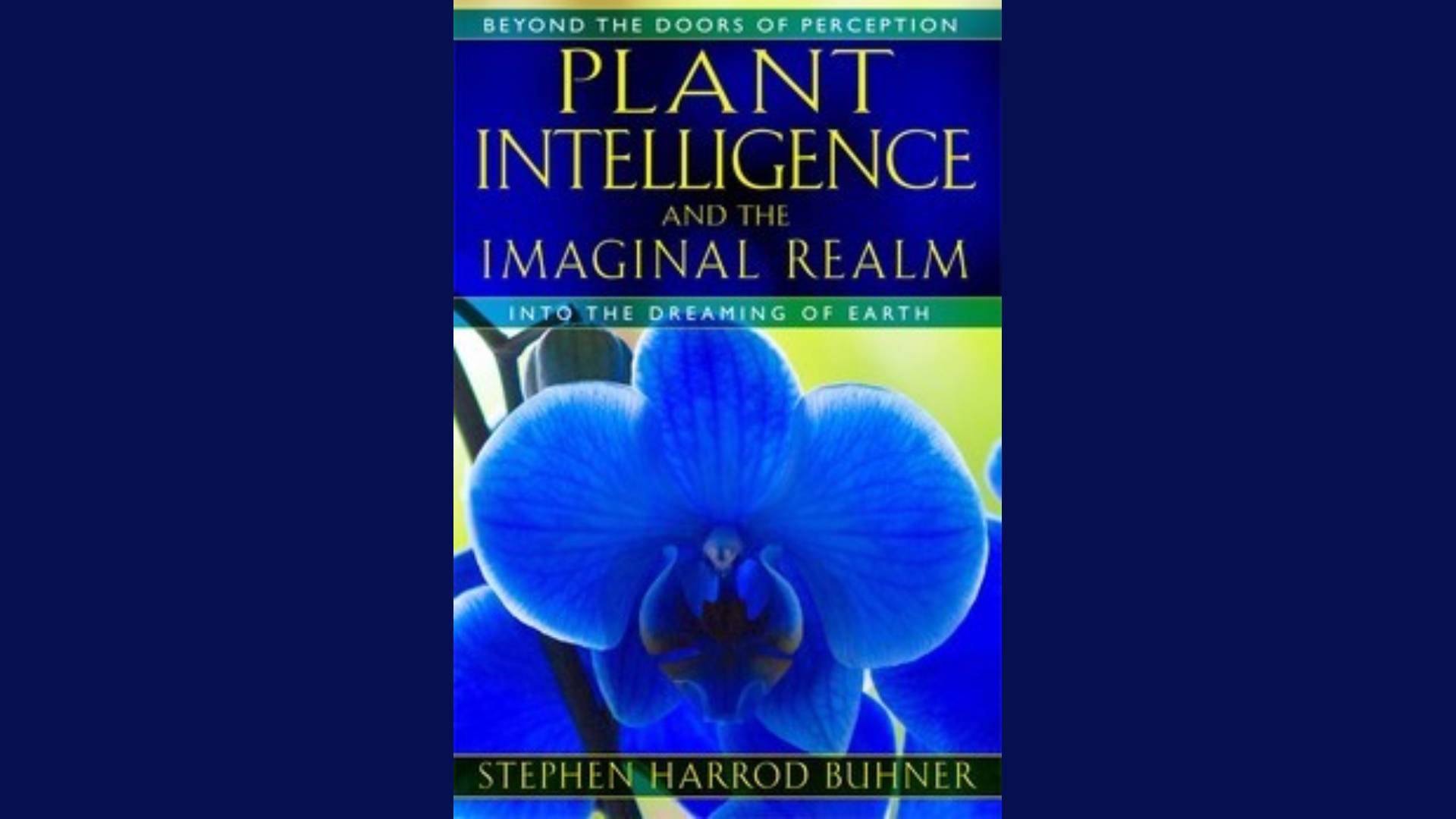Most of us have been told that ‘you can’t judge a book by its cover’. However, there have been many times that I have picked them by their cover. Stephen Harrod Buhner’s book “Plant Intelligence and the Imaginal Realm: Beyond the Doors of Perception into the Dreaming of Earth” (2014) is one fine example. The electric blue orchid cover drew me into it like a bee searching for nectar. Encountering this book was a perfect example of an image grabbing my attention and leading me into a seemingly magical realm where my own perception of how the world works was literally turned upside down on its head. (OK, here come the questions…) How come I never realized that trees have their butts in the air (giving off byproducts of its metabolism, i.e. oxygen) and their heads in the ground (root brains in search of more resources and collaborative relationships that sustain the entire forest)? How does seeing trees in this way change the way I engage with them? With the world?
When we change the way we perceive our environments and learn “to see the other members of the Earth Community from their point of view… and feel an empathy with their life, we begin to find a path to sustainable habituation of this planet. … This increased sense of the other, this expansion of perceptual awareness, does something else that is crucial, it feels good. It literally alters the experience of existential disconnection that so many in the West now have” (Buhner, 2014). What are the implications of developing empathy for plants, animals, and other people for ecosystem functioning and health?
How does my limited human perception of how the world really works keep me from finding solutions to a more balanced ecology? Does opening the gates to perception in my own brain and body allow me to find answers to these pressing questions?
Would I gain better understanding and find clearer answers if I were to pose these questions to the plants and animals that I encounter on a daily basis?


0 Comments